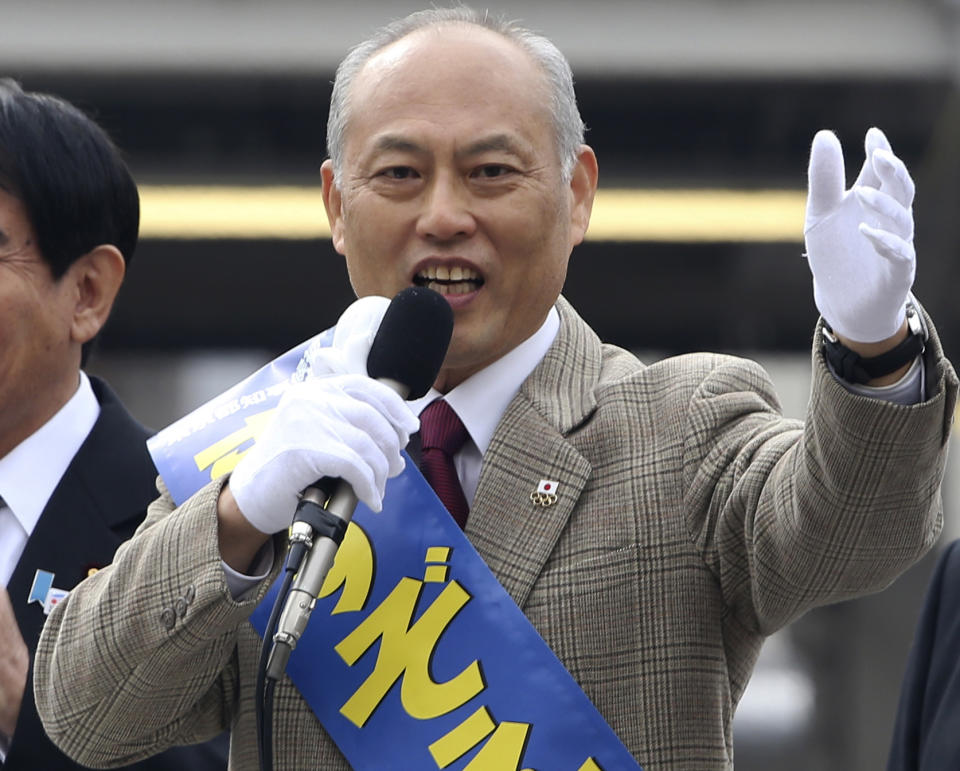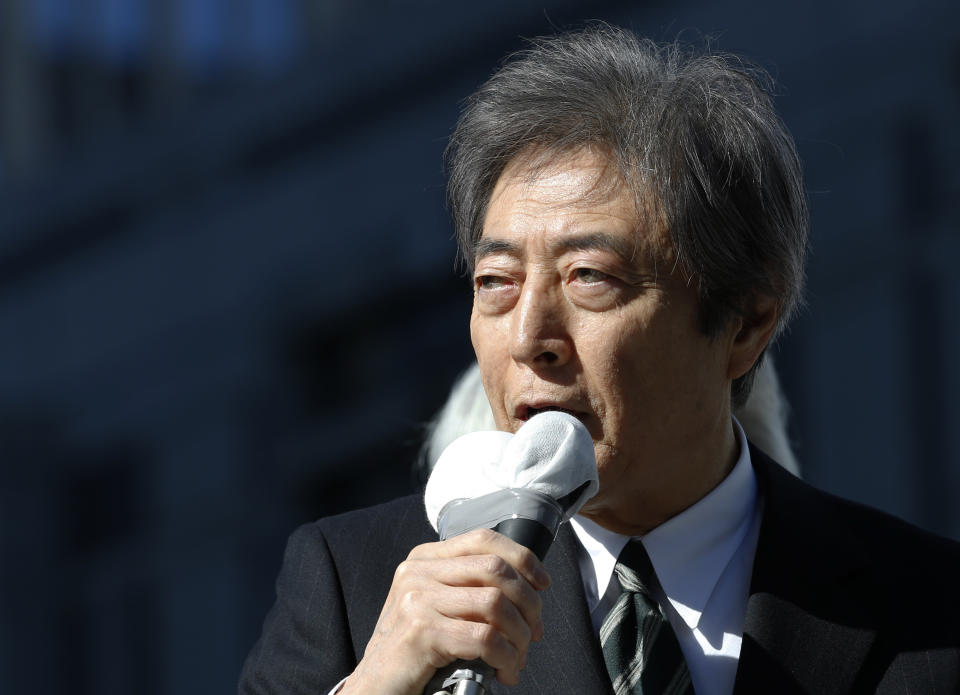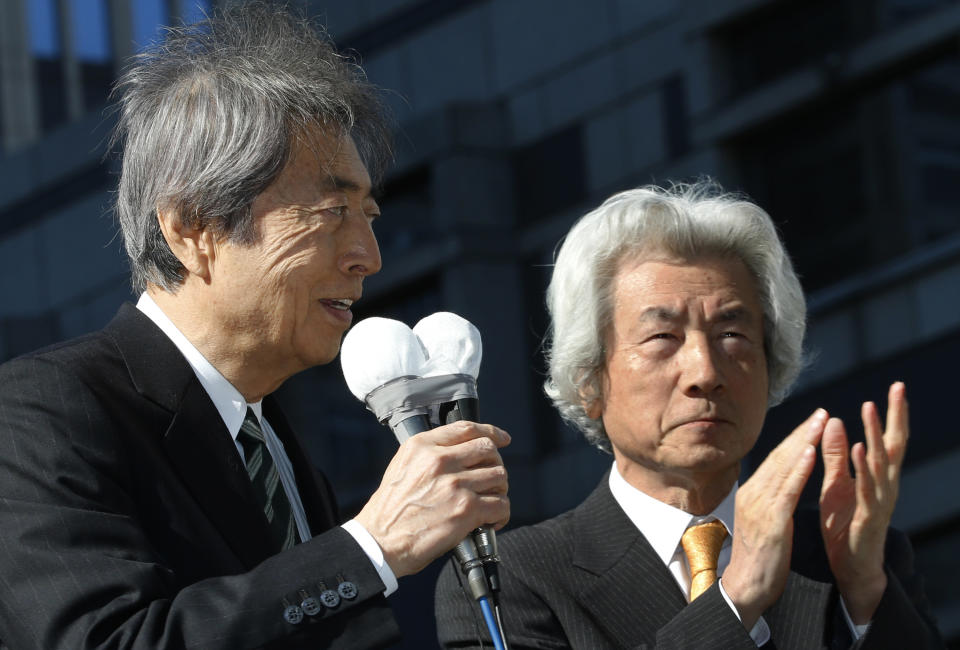Tokyo chooses governor in test for anti-nuke vote
TOKYO (AP) — Tokyo is voting Sunday for governor in an election widely seen as a test for Japan's public opinion on atomic power in a nation shaken by the Fukushima nuclear disaster.
A former prime minister in the 1990s, Morihiro Hosokawa, is backed by popular ex-premier Junichiro Koizumi in pushing for an end to nuclear power.
However, Japanese media polls showed the leading candidate was a former health minister, Yoichi Masuzoe, who is backed by Prime Minister Shinzo Abe.
Abe wants to restart Japan's 50 nuclear reactors that were idled following the Fukushima disaster. The outcome is likely to influence national policy as Japan goes through soul-searching on energy options after the March 2011 nuclear disaster — the worst since Chernobyl.
As of mid-afternoon, voter turnout was at about 20 percent, according to the Tokyo city government. The previous election's turnout was 32 percent.
The public is worried about safety after the multiple meltdowns at the Fukushima Dai-ichi plant. Throngs of protesters have periodically gathered outside government buildings and marched in parks, demanding an end to nuclear power.
"These days, I fear the world is headed in the wrong direction," Hosokawa said during his campaign. "It is outrageous to restart nuclear power. I knew I must take a stand."
Tetsuro Kato, professor of political science at Waseda University in Tokyo, said that the anti-nuclear vote suffered because they could not agree on one candidate between Hosokawa and Utsunomiya.
"This could have worked as a key vote on nuclear power, not just about city politics," he said. "But those pushing for zero nukes failed in their strategy."
Anti-nuclear candidates have been rare in Japan and generally lose, even in Fukushima, although movie star Taro Yamamoto was a surprise winner in last year's parliamentary election.
The other front-runners are Kenji Utsunomiya, a human rights lawyer, and Toshio Tamogami, a former military officer expected to draw support from nationalists pushing for a more assertive Japan.
Masuzoe has identified himself with Abe's relatively successful economic policies, which have set off a Tokyo stock rally. But he suffered a setback after a group of feminists accused him of discrimination and urged women not to vote for him. Masuzoe has said he champions issues such as building child care facilities and promoting jobs for women.
The election also includes colorful candidates, such as an 85-year-old inventor who goes by Dr. Nakamatsu, technology startup founder Kazumi Ieiri, and Mac Akasaka, a businessman with his Smile Party, who campaigned in an angel costume with wings.
The outgoing governor, Naoki Inose, led Tokyo' successful 2020 Olympic bid with great fanfare but resigned late last year over a money scandal.
___
Follow Yuri Kageyama on Twitter at twitter.com/yurikageyama




